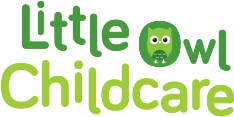At the Woodland this week we have been exploring ‘barefoot walks.’ The children got to have the freedom to take off their shoes and socks and feel the dirt in between their toes. The children loved it! They wanted to explore different areas of the Woodland to feel the dirt, water and mud. They could run, walk and jump around. Here’s why us practitioners love it too:
Development of the brain and nervous system. The feet are the most nerve-rich parts of the human body, which means they contribute to the building of neurological pathways in the brain.
Support foot and muscle growth. Walking barefoot can help develop and maintain an appropriate range of motion in the foot and ankle joints as well as strengthening stability within the muscles and ligaments of the feet and body.
Improve sensory development. Feeling the earth beneath their feet allows children to develop their somatosensory, proprioceptive, and vestibular sensory systems in ways that are not possible with shoes on.
Help connect us with nature. Research also tells us that children thrive in the outdoors and natural environments, so not having shoes as a barrier between our feet and the natural world increases the health promoting effects of spending time in nature for social and emotional wellbeing.
Give children a sense of freedom. Not wearing shoes allows us to blow off steam, relax, and reawaken the senses.

Improves safety awareness Walking barefoot teaches children to assess a situation and adapt to it. If there is a rocky surface, children quickly learn to slow their pace and seek the most stable surface. When barefoot, children tend to step with less force and are more likely to notice if they are putting their feet on something wet/spikey/soft etc.


Recent Comments